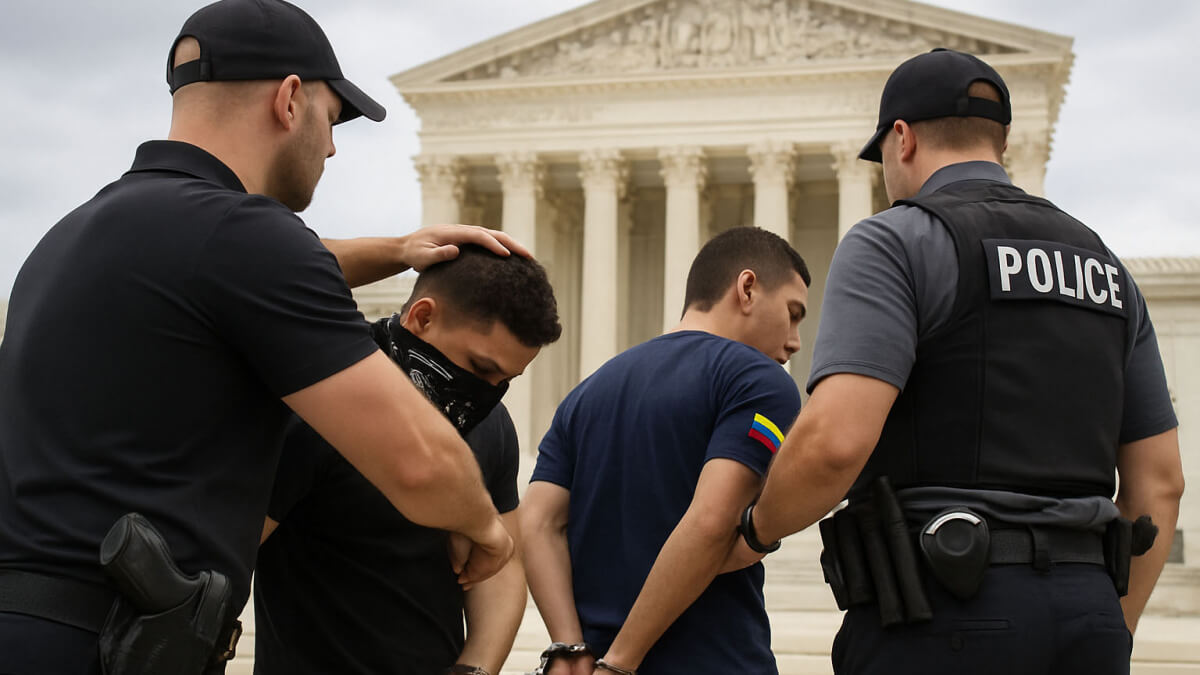In a striking late-night decision, the Supreme Court issued a temporary injunction against the Trump administration's plan to deport Venezuelan nationals accused of affiliating with the Tren de Aragua gang. The order, given under the seldom-invoked 1798 Alien Enemies Act, was halted pending further review, signaling a judicial intervention in immigration enforcement that has sparked controversy.
The court's emergency ruling came in response to a series of urgent requests filed by the American Civil Liberties Union (ACLU) on behalf of a group of Venezuelans detained in a Texas facility. The justices directed the administration not to execute any deportations from the "putative class of detainees" until the Court provides additional guidance.
This unexpected turn of events unfolded after the ACLU learned that immigration officials at the Bluebonnet Detention Center in Anson, Texas, had distributed "Notice and Warrant of Apprehension and Removal" documents to Venezuelan detainees. These notices, which were not standard deportation orders, explicitly cited the Alien Enemies Act and identified the recipients as members of the criminal organization Tren de Aragua, subjecting them to removal from the United States.
Justice Samuel Alito, supported by Justice Clarence Thomas, delivered a vehement dissent, criticizing both the substance and timing of the Court's action. Alito's five-page dissent lamented the Court's decision as "hastily and prematurely granted unprecedented emergency relief." He challenged the midnight timing, insisting there was no immediate need for such urgency.
The dissent raised concerns over jurisdiction, citing the All Writs Act and legal precedent to argue that the Court may have overstepped its bounds. Justice Alito's frustration was palpable as he noted that the Court of Appeals was in the process of deliberating on the emergency relief and that the Supreme Court had refused to wait for its decision.
The ACLU's legal team had mounted a rapid response, filing emergency motions in three different courts within a mere five-hour span. Their initial request for a temporary restraining order was rejected by Federal District Court Judge James Wesley Hendrix, leading them to escalate the matter to the Fifth Circuit and ultimately the Supreme Court.
Breitbart News reported that the ACLU's emergency filing sought a temporary restraining order from U.S. District Judge James Boasberg to ensure their clients received a 30-day notice before any deportation, citing the need for adequate time to mount legal challenges and protect due process rights.
This Supreme Court ruling represents a temporary setback for the Trump administration, which had seen a previous block on deportations under the Alien Enemies Act lifted by a narrow 5-4 Supreme Court decision. The ACLU argues that without due process, deportation to El Salvador could cause irreparable harm to their clients.
The legal and political implications of this ruling are significant, as it not only impacts the individuals involved but also sets a precedent for the use of the Alien Enemies Act in immigration enforcement. The case continues to evolve as both sides prepare for the next phase of this legal battle.





